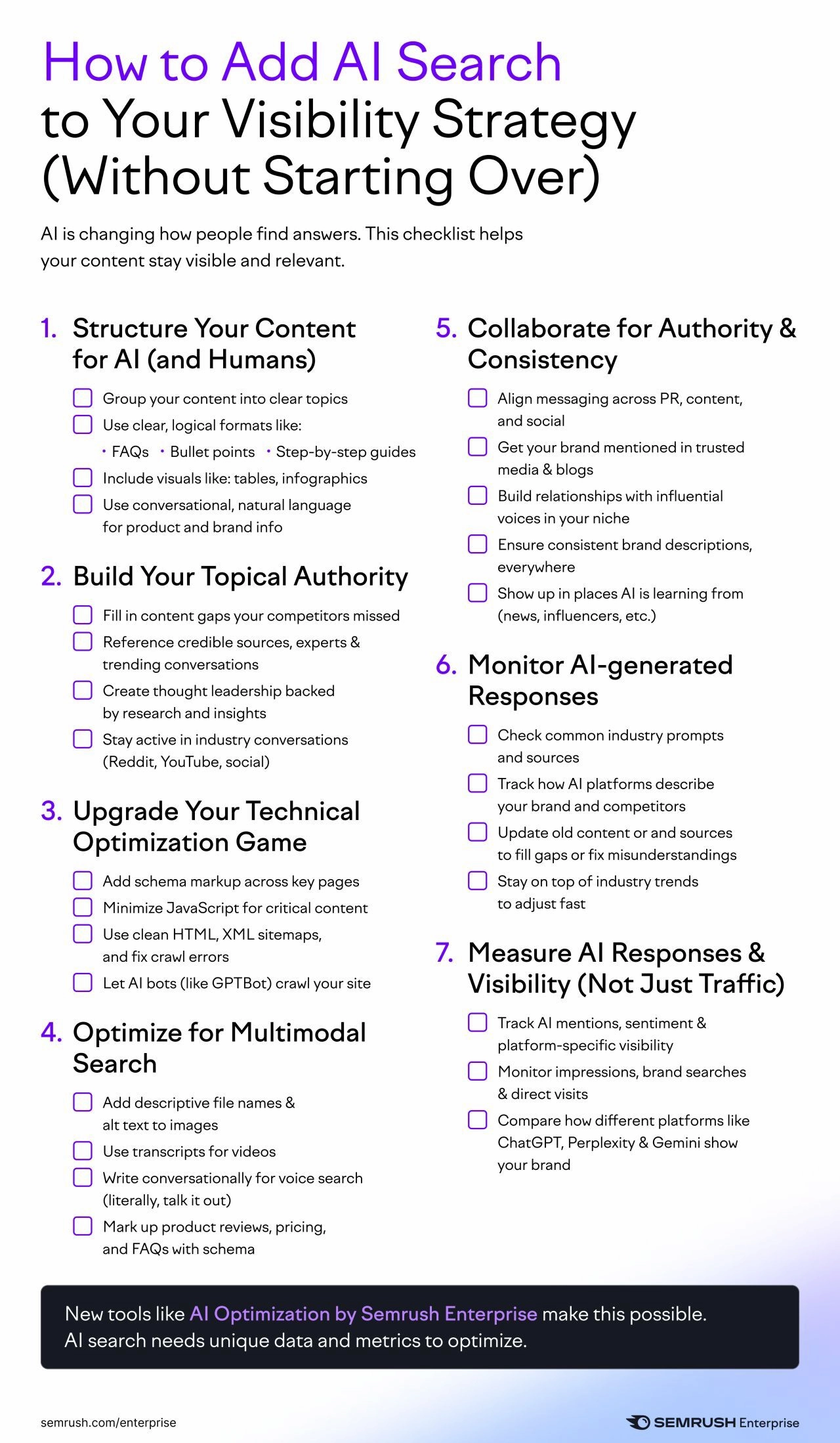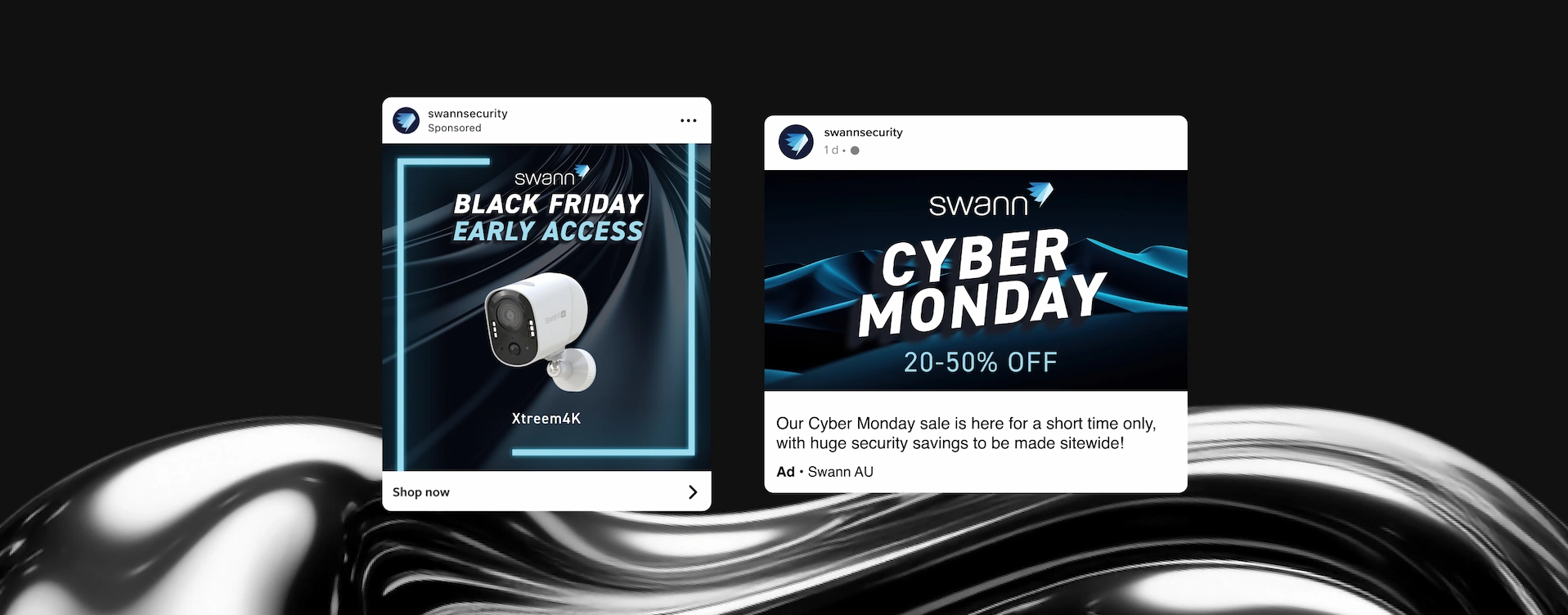AI is changing SEO: Here’s what that means for your website
If you’ve noticed a dip in your website traffic lately, it’s not just you. Search is going through one of its biggest shakeups in years, and AI is right at the centre of it.
From Google’s new AI Overviews to people turning to ChatGPT instead of traditional search, the way users find information (and the way businesses get found) is changing fast.
If you rely on SEO for leads, brand awareness or sales, now’s the time to take stock. Let’s unpack what’s going on, why it matters, and what your business can do to stay visible and relevant in an AI-shaped search world.
What’s actually changing?
AI is answering questions before users click
Google’s AI Overviews now summarise content from multiple websites and shows it at the very top of the search results. Instead of clicking through to a bunch of different sites, users get a neat little AI-written summary. Handy for them, but not so great for your click-through rate.
Some big names (like HubSpot) have already reported serious drops in traffic after these AI features rolled out. And while it’s still early days, the message is clear: if you want to stay visible, your content needs to be in the AI summary, not just under it.
Page one visibility is shrinking fast
There’s less room to be seen because between ads, AI summaries, and featured snippets, fewer organic links are appearing ‘above the fold.’ So even if your content is ranking well, it might be buried under newer, flashier formats. In other words, it’s not enough to be on page one anymore. You need to be the answer, or at least close to it.
Trust, structure and clarity are winning
AI-powered search engines lean heavily on structure, authority and clarity. Google’s EEAT principles (Experience, Expertise, Authoritativeness, Trustworthiness) are now baked into how results are generated and ranked.
That means vague, keyword-stuffed content is on its way out. To stand out, your site needs to show real credibility and deliver genuinely helpful content, ideally from someone who knows what they’re talking about (like you).

How to stay visible when AI’s writing the answers
1. Make your content AI-friendly, not just people-friendly
Want to be featured in those new AI summaries? Help the machines help you.
- Use clear headings and subheadings so your content is easy to scan.
- Add bullet points, lists and short, snappy answers to common questions.
- Use schema markup (like FAQ or Article) to tell search engines exactly what your content is about.
This isn’t just about ticking technical boxes, it’s about being readable, skimmable and useful. AI loves content that gets to the point quickly.
2. Don’t just write content – share expertise
AI is getting better at telling the difference between generic content and content that actually helps someone.
That’s why your perspective matters. Share what you know, talk about your experience, and don’t be afraid to include case studies, quotes, or lessons learned. The more specific and grounded your content is, the better it will perform.
For example, if you’re a credit card provider, don’t just write a post titled, “What is a balance transfer?” Instead, share insights based on your customers’ behaviour, such as the common pitfalls people face when switching cards, or how your customer service team helps guide them through the process.
Real insights (like right here) beat generic advice every time.
3. Think like your customers talk
People are searching differently now. Thanks to AI assistants and voice search, we’re asking complete questions, not just typing in keywords.
Instead of optimising for “low interest credit card,” try content that answers:
- “What’s the best low interest credit card for students in Australia?”
- “Can I do a balance transfer without paying extra fees?”
These longer, conversational searches are gold for SEO. They’re less competitive, more specific, and more aligned with how people are actually searching today.
4. Build depth, not just reach
Posting on every topic under the sun might feel productive, but it actually confuses AI about what your site is about.
Instead, focus on building up topical authority – that’s clusters of content that go deep on a specific subject. For example:
- Choosing the right card for your lifestyle (travel, balance transfer, low interest)
- Understanding credit card fees and how to avoid them
- Tips to build your credit score using a credit card responsibly
Link them together internally, keep them updated, and you’ll gradually position your site as a trusted source on those topics.
5. Use AI tools wisely but don’t outsource your brain
Yes, you can use AI tools to help with SEO. We do too. They’re great for:
- Keyword research
- Content outlines
- Finding gaps or missed opportunities
But don’t let AI write your content from start to finish. That’s how you end up sounding like everyone else, and Google’s getting better at sniffing out low-effort, auto-generated content.
The sweet spot? Use AI to speed up your process, then layer on your own expertise, tone and insight. That’s what makes it uniquely you and uniquely valuable.
So… is SEO still worth investing in?
100%. But like everything in digital, the goalposts have moved.
The rules of the game are changing, but the fundamentals still matter. Quality content. Clear structure. Real authority. Helpful answers.
AI isn’t replacing SEO. It’s just forcing it to evolve and mature. The businesses that do well in this new landscape will be the ones that:
- Stay flexible and open to change
- Focus on helping users, not just pleasing algorithms
- Combine strategy with substance
- And that’s where we come in.
Final takeaways: How to play the AI + SEO game right
- Clicks are down but smart content still gets seen. Aim to be the summary, not just below it.
- Help AI understand your content. Structure it clearly and use schema wherever possible.
- Write like a human, optimise like a machine. Focus on clear, helpful answers to real questions.
- Think in topics, not just blog posts. Build clusters of content that show you know your stuff.
- Use AI tools, but stay in the driver’s seat. Your insight is what makes the difference.
Need help navigating SEO in the age of AI?
This is what we do. At Rock Agency, we help brands build smarter digital strategies, from content and UX to websites that actually work. If you want to get ahead of AI-driven search, we’d love to help. Let’s chat.

